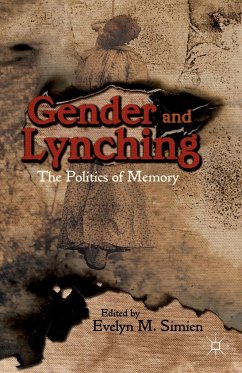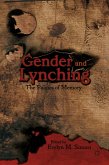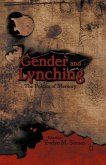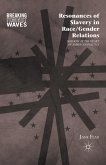"By examining the various roles that women, mostly black but some white, played in the history of lynching, the collection does well to expose and emend the gender and racial bias of our visual cognition." - Signs
"This volume brings black women to the fore, as victims, martyrs, and heroes, as characters in works of literature and art, as agents, activists, and mythmakers. Gender and Lynching is a fine collection. Taken as a whole, this volume furthers the general literature on black women even beyond the important topic of lynching, while addressing both historical realities and fictionalizations in drama and prose. Lynching was a practice geared to capture the public imagination, the ultimate ugly performance designed to instruct, warn, sexualize, romanticize, and to discipline and frame future behavior. The essays in Evelyn Simien's anthology take a practice almost universally gendered as male - and therefore one in which gender has been almost invisible - and recasts it as primarily gendered. In doing so it invites us to creatively re-imagine the concepts of race, gender, punishment, and liberation." - Kristin Waters, Resident Scholar at the Women's Studies Research Center at Brandeis University, professor of Philosophy at Worcester State University, and co-editor of Black Women's Intellectual Traditions
"This volume brings black women to the fore, as victims, martyrs, and heroes, as characters in works of literature and art, as agents, activists, and mythmakers. Gender and Lynching is a fine collection. Taken as a whole, this volume furthers the general literature on black women even beyond the important topic of lynching, while addressing both historical realities and fictionalizations in drama and prose. Lynching was a practice geared to capture the public imagination, the ultimate ugly performance designed to instruct, warn, sexualize, romanticize, and to discipline and frame future behavior. The essays in Evelyn Simien's anthology take a practice almost universally gendered as male - and therefore one in which gender has been almost invisible - and recasts it as primarily gendered. In doing so it invites us to creatively re-imagine the concepts of race, gender, punishment, and liberation." - Kristin Waters, Resident Scholar at the Women's Studies Research Center at Brandeis University, professor of Philosophy at Worcester State University, and co-editor of Black Women's Intellectual Traditions








